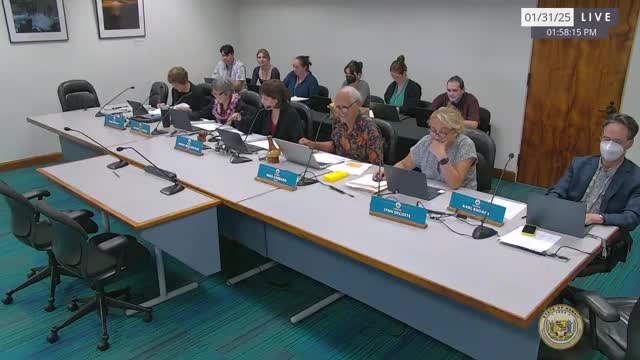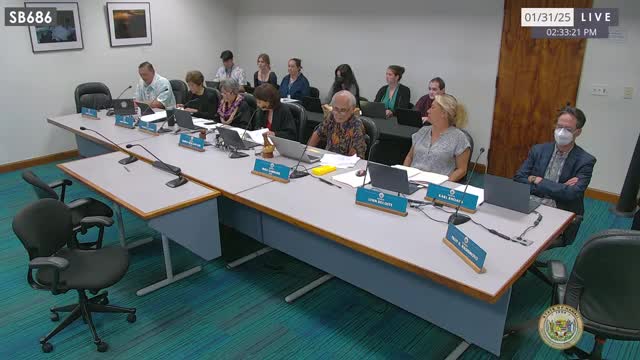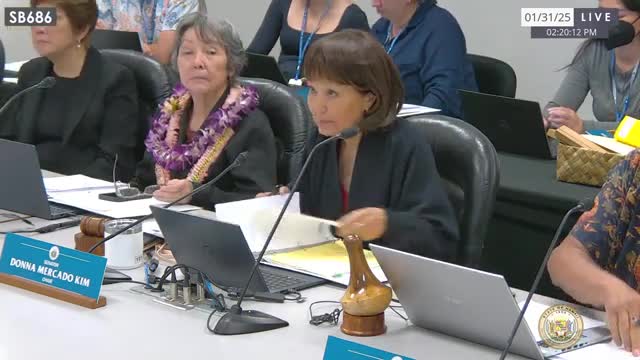Article not found
This article is no longer available. But don't worry—we've gathered other articles that discuss the same topic.

Senators hear testimony supporting UH wastewater technology testing pilot with $750,000 request

Mixed testimony on SB1154 as lawmakers weigh creating disease and toxin testing lab at JABSOM

Support and debate on $3 million bill to fund University of Hawaii climate resilience center

